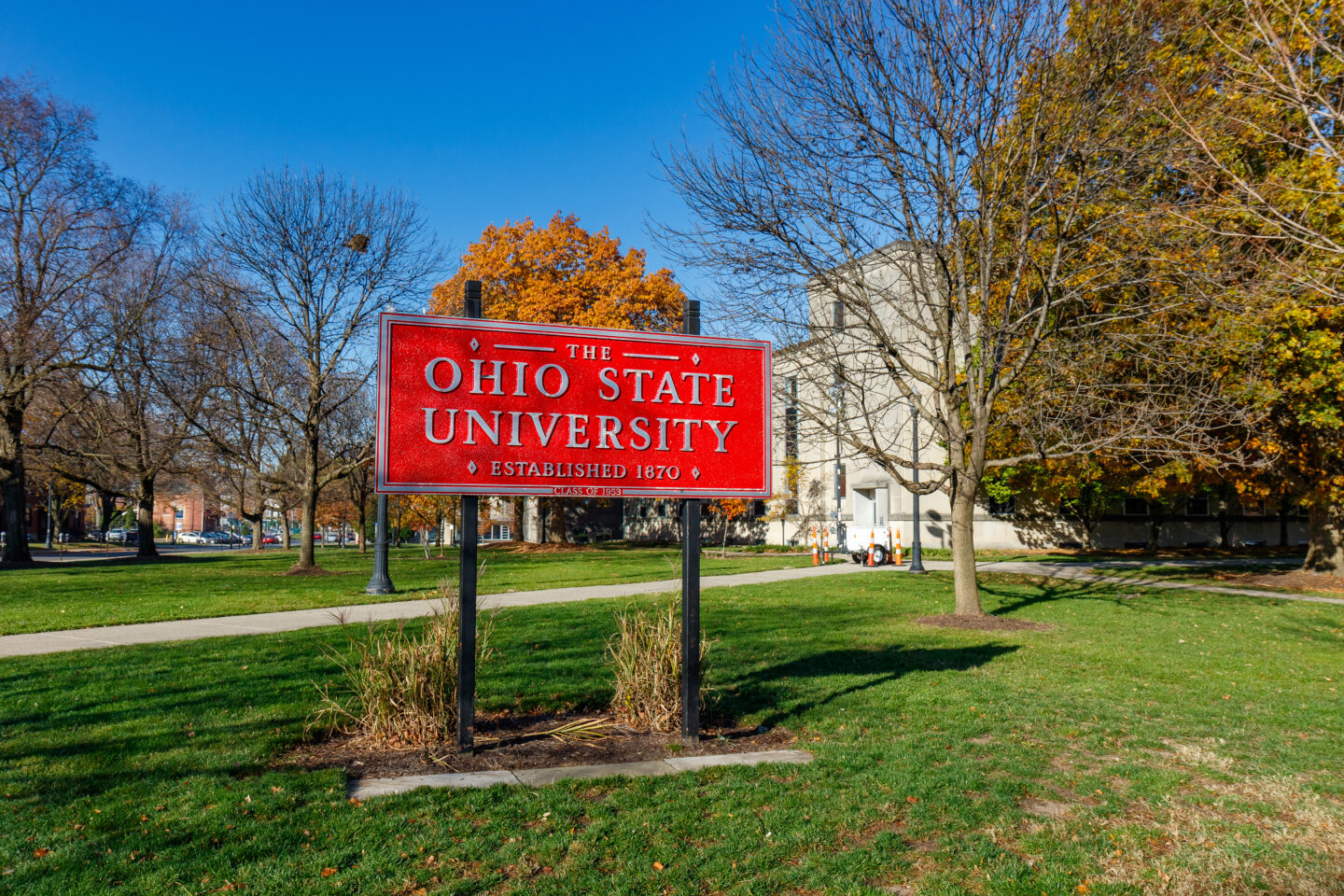
Ohio State University Receives DEA License to Grow Psilocybin
The US Drug Enforcement Agency has granted Ohio State University a license allowing researchers to cultivate psilocybin mushrooms for use in scientific studies. The license, granted to Ohio State and its partner Inner State Inc., a mental health and wellness research and development company, is the first license granted by the DEA to grow whole psilocybin mushrooms for research purposes.
“This license is an important milestone not only for Inner State and Ohio State, but for the entire field of psychedelic research,” Inner State CEO Ashley Walsh said Wednesday in a statement quoted by the Columbus Dispatch.
Several studies have shown that psilocybin, the primary psychoactive compound in magic mushrooms, may have extraordinary potential as a treatment for various serious mental illnesses. But studies on psilocybin typically use forms of the drug that have been synthesized in a lab. The new license, issued by the DEA, allows the states of Ohio and Inner State to grow whole psilocybin mushrooms to naturally produce the compound. Under the terms of the license, all cultivation of psilocybin mushrooms occurs in a federally registered facility under strict DEA regulations.
“By combining cutting-edge techniques in genomics and metabolomics, we have the opportunity to obtain a high-resolution picture of the chemical diversity of fungi that has been difficult to study for several decades,” said Ohio State researchers Dr. Jason Slot and Dr. Kou San Ju.
Researchers believe that using whole mushrooms in mental health studies could give participants the benefit of other compounds besides psilocybin, potentially offering additional therapeutic benefits. Walsh said it’s possible that psilocybin mushrooms “have multidimensional healing properties” that could be more effective in improving the quality of life for people with serious mental illness.
Ongoing research into psychedelics like psilocybin, MDMA, and ketamine has shown that the drugs have potential therapeutic benefits, especially for serious mental illnesses like depression, addiction, and anxiety. A study published in the peer-reviewed journal JAMA Psychiatry in 2020 found that psilocybin-assisted psychotherapy was an effective and fast-acting treatment for a group of 24 participants with major depressive disorder. A separate study published in 2016 found that treatment with psilocybin resulted in significant and sustained reductions in depression and anxiety in patients with life-threatening cancer.
In 2017, the US Food and Drug Administration designated MDMA as a breakthrough therapy for PTSD, a move that streamlined clinical trials testing the drug’s effectiveness. The following year, the FDA granted psilocybin equal status as a breakthrough therapy for treatment-resistant depression.
Alan Davis is director of the Center for Psychedelic Drug Research and Education at Ohio State University’s College of Social Work, which he launched last year with support from a $1.5 million private donation. The center has developed a 25-hour continuing education program and a bachelor’s minor in Psychedelics Studies. In January, the center launched its first clinical trial to investigate the use of psilocybin to treat military veterans diagnosed with PTSD.
“Clinical trials are currently being completed for people with addiction, depression, PTSD, OCD and social anxiety [and] “End-of-life distress in terminally ill patients,” Davis told Columbus Monthly earlier this year. “All of these studies have shown really promising effects so far.”
Ongoing research suggests that treatment with psychedelics like psilocybin combined with psychotherapy “can reduce, and in some people even alleviate, the mental health problems they are struggling with,” Davis said. “Some studies have shown that these positive effects can last six to twelve months.”
Other universities are also studying the therapeutic value of psilocybin and other psychedelics, but Davis says Ohio State is the first state to establish such a social work center. He added that training professionals with a degree in social work is crucial, as they make up the bulk of the workforce that deals directly with patients in a clinical setting.
“Usually the only message is, ‘Drugs are bad, drugs are dangerous, don’t do drugs,'” Davis said. “This is intended to give people that foundational knowledge so they can understand all of the interdisciplinary work on psychedelics.”
Slot believes we can learn a lot from mushrooms, pointing out that government bans have stymied studies and set researchers back decades at a time of significant advances in biological sciences, particularly genetics. He hopes recent efforts to destigmatize psychedelics are successful so research can move forward.
“I don’t think psychedelics will go away. They get to the bottom of the nature of consciousness, the relationship between mind and body,” Slot said. “These are fundamental questions of our nature.”

Post a comment: